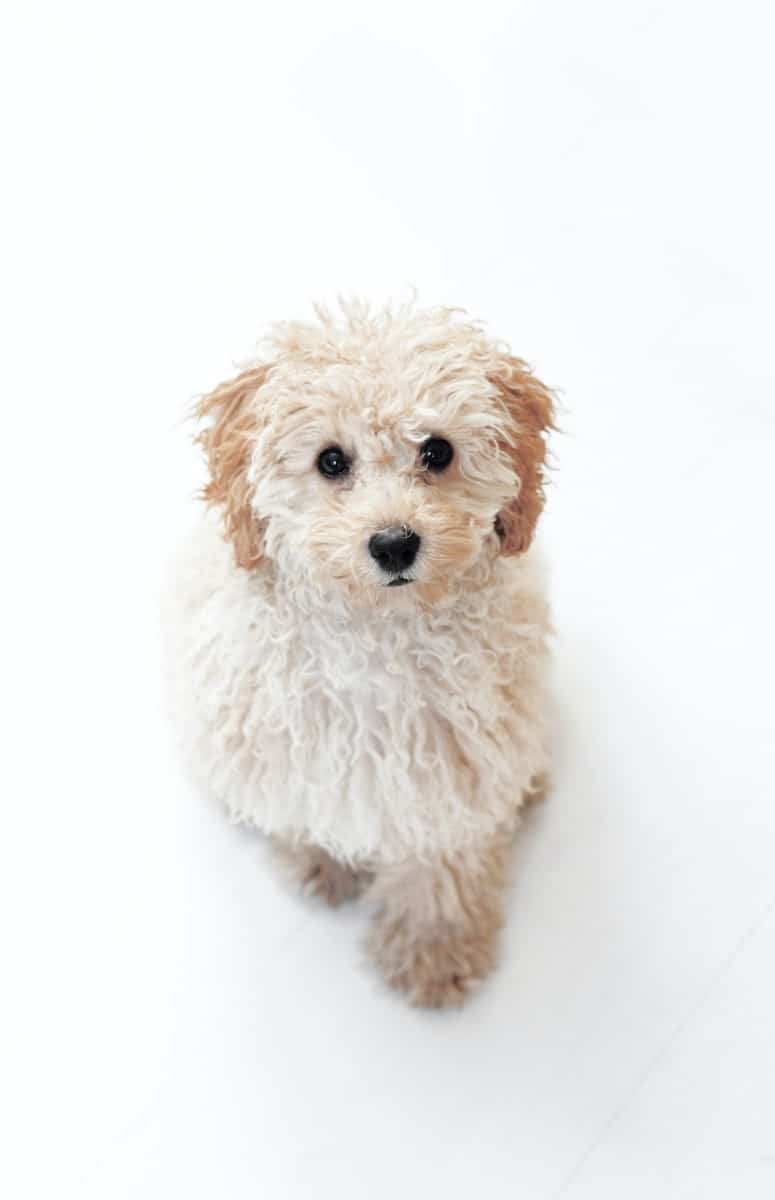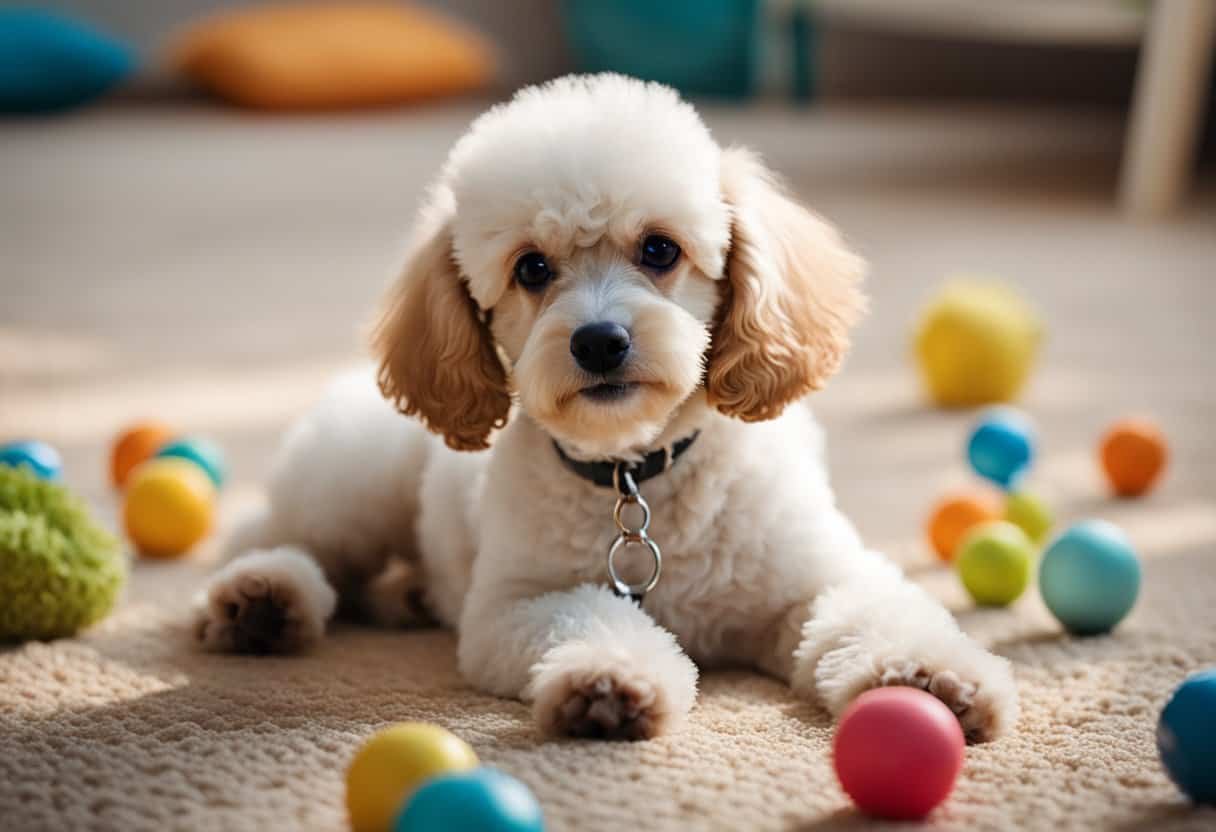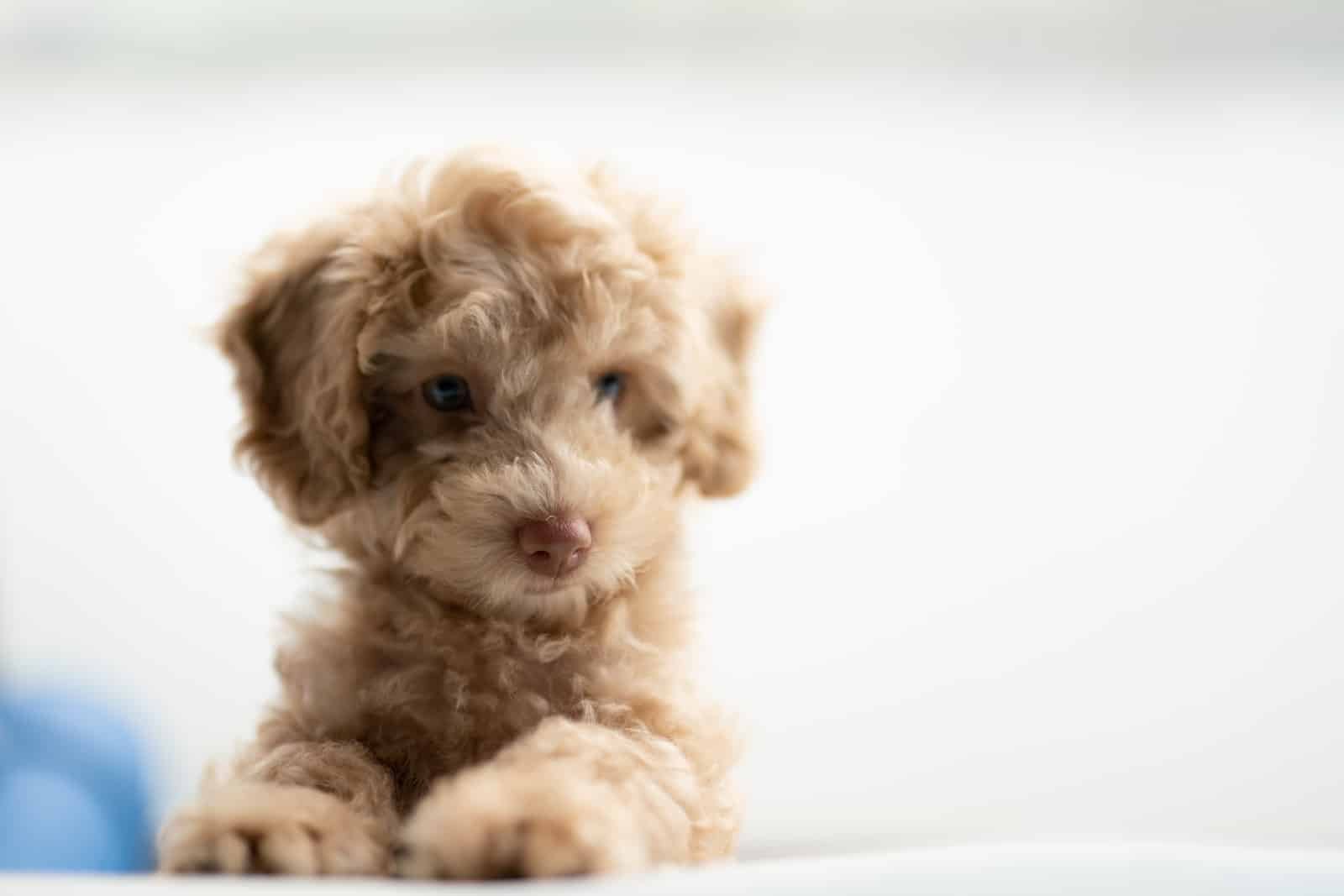
Poodles small dogs may be small in stature, but they are anything but small when it comes to offering companionship and love. These charming canines come in three sizes: Standard, Miniature, and Toy—all of which make perfect pet choices for those with limited space. With their intelligence, loyalty, and good-natured temperaments, Poodles are an ideal breed for families looking for a canine companion. Whether you’re considering adopting a puppy or adult dog of this breed, get ready for unconditional love from your new furry family member!
From Our Experience: As poodle enthusiasts who have worked with hundreds of poodle owners and rescue organizations over the years, we’ve gathered real-world insights that go beyond textbook knowledge. The information in this article reflects both professional expertise and hands-on experience with poodles of all sizes and temperaments.
What is a Poodle?
Poodles are a popular breed of dog known for their intelligence, loyalty and good-natured temperaments. They come in three sizes: Standard, Miniature and Toy. The Standard Poodle stands around 15 inches tall and weighs between 40 to 70 pounds, while the Miniature variety is 11 to 15 inches tall and 20 to 40 pounds. The Toy size is no more than 10 inches tall and usually 6 to 9 pounds. All three sizes have curly coats that require frequent grooming.
Poodles can be prone to hip dysplasia, so it’s important to choose a puppy from parents who have been screened for this condition. With the right nutrition, exercise and daily mental stimulation, Poodles can live an average of 12 to 15 years. Due to their high energy levels, all sizes need regular exercise and should get at least 30 minutes of activity per day. Toy poodles may require less physical activity but will still benefit from regular walks or playtime with their owners.
The Poodle breed is highly adaptable and make great pets for people with allergies or those living in small spaces thanks to their variety of sizes and moderate barking level. The American Kennel Club officially recognizes three sizes of Poodle—Standard, Miniature, and Toy—and adult dogs usually reach their full size by one year of age. No matter which size you choose, you’re sure to gain a devoted friend in your new companion!
Variations of Poodles
Poodles come in three sizes, with the Standard Poodle being 15 inches tall and weighing between 40 to 70 pounds, the Miniature variety being 11 to 15 inches tall and 20 to 40 pounds, and the Toy size no more than 10 inches tall and usually 6 to 9 pounds. While all poodles have curly coats that require frequent grooming, each size has its own unique characteristics.
The Standard Poodle is known for its intelligence and loyalty, making them great family pets. They require daily exercise such as long walks or runs in order to stay healthy and happy. The Miniature Poodle is a bit more independent but can still be just as devoted as their larger counterparts. They need less exercise than Standard Poodles but should still get moderate activity at least once a day. Finally, the Toy Poodle is the smallest of the three sizes but can be just as energetic and intelligent. They do not need as much exercise due to their smaller size but still benefit from regular walks or playtime with their owners.
No matter which size of poodle you choose, you’ll gain a devoted companion who will bring joy into your life!
Standard Poodle
The Standard Poodle is the biggest of all three sizes, with heights between 15 and 24 inches and weighing anywhere from 40 to 70 pounds. It is one of the most recognizable breeds in the world and has a reputation for being highly intelligent and loyal. This breed loves learning new things so regular mental stimulation is important for their overall health and happiness. They need daily exercise like long walks or runs to stay healthy, but can be just as content with moderate activity once a day. Standard Poodles are also known for being good with children and other pets, making them an ideal pet for families. With proper care, these playful pups can live up to 12 years or more!
Best Living Space for a Standard Poodle
The Standard Poodle is a medium-sized dog that can make the perfect companion for small living spaces. While they require daily exercise and socialization, their energetic and playful personalities make them ideal for apartments or other smaller living areas.
Standard Poodles are highly intelligent and relatively easy to train, making them a brilliant choice for first time pet owners. As long as their basic needs are met, these pups can make a great addition to any home!
Appearance and Size
The Poodle is a beautiful breed of dog with a unique curly coat. It is recognizable for its distinctive hairdo that includes pom-poms, cords, and braids. They are available in three different sizes; Standard, Miniature, and Toy. The Standard size can reach up to 24 inches tall and weigh 40-70 pounds, making them the largest of the three varieties. Miniature Poodles reach heights between 11-15 inches and typically weigh 15-17 pounds while Toy Poodles are the smallest at 10 inches or less and weighing under 6 pounds. All sizes come in various colors including black, white, apricot, silver, blue, brown, red and cream. With their small size and friendly nature, they are an ideal companion for people living in smaller spaces or those who cannot handle the energy levels of larger breeds.
Temperament
The Poodle is an intelligent and alert breed of dog that loves to be around people. They are loyal, devoted, and eager to please, making them a great choice for families. They are also quite active and need regular exercise and mental stimulation to stay happy and healthy. They can make great watchdogs as they will bark when strangers approach or if they sense something amiss. However, with proper training they can learn to control their barking level and become more subdued in public settings. The Poodle is also an allergy-friendly breed due to its low shedding coat which makes it ideal for people with allergies or asthma. Overall, the Poodle is an excellent companion who will reward owners with unconditional love and affection.
Health Concerns
The Poodle breed is generally considered to be a very healthy breed, however, there are some health concerns that owners should be aware of. One of the most common issues in the breed is hip dysplasia, which can lead to discomfort and mobility issues. Additionally, their curly coats can be prone to tangles and mats if not groomed properly. They may also be more prone to eye diseases such as progressive retinal atrophy. To minimize health risks, owners should ensure their poodles receive regular veterinary checkups and vaccinations as well as proper grooming. Additionally, providing daily exercise and mental stimulation will help keep them happy and healthy throughout their lifetime. With proper care, the Poodle is capable of living a long life with few health concerns.
Miniature Poodle
Miniature Poodles are a popular choice for those looking for a small companion. These loyal and intelligent dogs are the smallest of the three poodle varieties, standing only 11 inches tall or less at the shoulder. They are also known to be very active and energetic, making them great companions for those who enjoy an active lifestyle. Miniature Poodles have an average life expectancy of 12-15 years, and they come in a variety of colors including black, white, cream, apricot and silver. Miniature Poodles are recognized by the American Kennel Club as one of the top 20 most popular breeds in the United States. They make excellent family pets as well as great companions for people with allergies due to their hypoallergenic coats. Additionally, they are known to have low barking levels which make them suitable for apartment living. While miniature poodles require regular exercise and mental stimulation to remain happy and healthy, their small size makes them ideal for those with limited space or time to devote to a dog breed.
Best Living Space for a Miniature Poodle
The Miniature Poodle is the middle size of all three varieties, with heights between 11 and 15 inches and weighing anywhere from 20 to 40 pounds. These puppies are known for being energetic, playful, and loyal companions that love spending time with their owners. They are also highly intelligent and require regular mental stimulation in order to stay happy. While they do need exercise , they don’t require as much activity as Standard Poodles, making them a great choice for those living in smaller spaces. Miniature Poodles can live up to 12 years or more with proper care!
The Miniature Poodle is an ideal pet for small living spaces thanks to their moderate size and energy level. They require daily exercise and socialization, but can thrive in apartments or other smaller living areas as long as their basic needs are met. Miniature Poodles are relatively easy to train and make great companion animals for the first time pet owners.
Appearance and Size
Miniature Poodles are small, compact dogs with an average adult size of 11 inches or less at the shoulder. They have a square-shaped body and a slightly rounded head, with long, floppy ears that hang close to the face. Their coat is curly, wiry and dense, and they come in a variety of colors including black, white, cream, apricot and silver. Additionally, their coats are known to be hypoallergenic and low-shedding. Miniature Poodles have an average weight of 10-15 pounds and three official sizes recognized by the American Kennel Club; Toy (less than 10″), Miniature (10″ – 15″) and Standard (over 15″). No matter which size you choose, Miniature Poodles require daily exercise as well as mental stimulation to remain healthy and happy.
Temperament
Miniature Poodles are highly intelligent and loyal dogs who thrive on human companionship. They love to play and interact with their family, but they can also be independent at times. These pups are eager to please and make great watchdogs due to their high energy levels. They learn quickly, often picking up tricks and commands in no time. Miniature Poodles make great family pets, as they get along well with children and other pets. However, they may bark excessively if not properly trained or socialized. As long as they receive regular exercise, mental stimulation and plenty of love, Miniature Poodles will remain healthy and happy for many years to come. With an average life expectancy of 12-15 years, these small dogs can provide years of faithful companionship for people living in small spaces or those with allergies who cannot own other breeds of dog.
Health Concerns
Miniature Poodles are generally healthy dogs, but they may be prone to certain health issues. Hip dysplasia, a condition in which the thigh bone does not fit properly into the hip joint, is a common issue that can occur in all sizes of the poodle breed. Other potential health problems include eye diseases, epilepsy and luxating patella (dislocation of the kneecap). Regular veterinary checkups and genetic testing can help identify any underlying conditions so that they can be treated as soon as possible. Proper nutrition and daily exercise are also important for maintaining your Miniature Poodle’s good health. A combination of moderate exercise (such as walks or playing fetch) along with mental stimulation (puzzle toys) will help keep their minds active and alert.
Overall, Miniature Poodles make great companions for people with small spaces or allergies who cannot own other breeds of dog. With proper care and attention, these small dogs can provide years of faithful companionship while remaining healthy and happy.
Toy Poodle
Toy Poodles are a popular breed of small dogs that can make great companions for those living in small spaces. They typically stand about 10 inches tall and have curly coats that come in various colors. One of the main advantages of a Toy Poodle is their low energy levels, making them perfect for those who don’t want to spend all day playing with their pet. Additionally, they are known to live up to 15 years, which is longer than many other breeds.
The American Kennel Club recognizes three official sizes of Toy Poodles: miniature, toy, and standard. Miniature poodles typically range from 8-11 inches tall at the shoulder while toys measure less than 10 inches tall. The average size for an adult Toy Poodle is between 6-9 inches tall at the shoulder and weigh around 4-6 pounds fully grown.
Toy Poodles also tend to be quieter than other breeds, so barking may not be an issue for people living in areas with noise restrictions or close neighbors. However, regular exercise is still important for keeping them healthy and happy, as well as preventing excessive barking or destructive behavior due to boredom. As long as you supply your Toy Poodle with love and attention alongside plenty of playtime and mental stimulation, you’ll have a loyal companion that will remain by your side for years to come!
Best Living Space for a Toy Poodle
The Toy Poodle is the smallest size of all three varieties, with heights no more than 10 inches and usually weighing 6 to 9 pounds. These pint-sized pups are known for their playful and cuddly personalities, which makes them great companion animals. They are also highly intelligent and require regular mental stimulation in order to stay happy. Despite their small size, Toy Poodles still need exercise and will benefit from moderate activity at least once a day. With proper care, these adorable little dogs can live up to 12 years or more!
The Toy Poodle is the perfect pet for small living spaces thanks to its tiny size and moderate energy level. They require daily exercise and socialization, but can thrive in apartments or other smaller living areas as long as their basic needs are met. Toy Poodles are relatively easy to train and make great companion animals for first time pet owners.
Appearance and Size
Toy Poodles are renowned for their distinct, curly coats that come in a variety of colors. Their small size, ranging from 6-9 inches tall at the shoulder when fully grown, and 4-6 pounds in weight make them perfect for those living in tight quarters. They also have a wide range of sizes to choose from, with miniature poodles typically measuring 8-11 inches tall and toy poodles measuring less than 10 inches tall. With their graceful gait and fluffy fur, Toy Poodles are sure to be an eye-catching addition to any home!
Temperament
Poodles, especially Toy Poodles, are highly intelligent and make wonderful companions. They have a pleasant disposition and love nothing more than to be around their family. Toy Poodles are very devoted and loyal to their owners and can even be trained to do tricks! With their mild temperament and loving nature, they make great pets for families with children. Because of their small size, they also require less exercise than larger breeds; however, regular walks and playtime are still necessary to keep them happy and healthy. They are also relatively quiet compared to other dogs, making them an ideal choice for people who live in apartments or condos.
Health Concerns
Poodles, especially Toy Poodles, are generally a healthy breed with few health problems. However, there are some common health issues to be aware of. Hip dysplasia and Luxating patella are two of the most common issues for this breed. It’s important to ensure that your pup is coming from a reputable breeder that does regular health checks on their animals. Regular vet check-ups can also help catch any potential problems early so they can be treated quickly. Additionally, since Poodle sizes vary significantly, it’s important to make sure you purchase one that meets the official size standards set by the kennel club. This will help keep your pup healthy and free from any joint or bone issues related to size discrepancies.
Characteristics of All Poodles Small Breeds
Poodles are a friendly, intelligent breed that come in three sizes: Standard, Miniature and Toy. Regardless of size, all Poodles share the same basic characteristics, including their curly coat and energetic personality. They make great companions for people of all ages, but they do need regular exercise and mental stimulation to keep them happy and healthy. All Poodle breeds require daily brushing and grooming to keep their coats looking their best. Plus, they tend to have low-shedding coats, which makes them a great choice for people with allergies. As far as barking goes, most Poodles are considered average barkers – they won’t bark excessively but will alert you when something is amiss. Of course, this can vary depending on the individual dog’s temperament. Adult sizes can range from 8 inches tall (Toy) to 24 inches tall (Standard), so there’s a size variety available for any living space. The life expectancy of Poodles is usually between 12 and 15 years when properly cared for.
Grooming Requirements
Grooming a Poodle is an important part of keeping your pup looking and feeling their best. Depending on the size of your Poodle, grooming requirements will vary. For all sizes, regular brushing is a must to keep their curly coats free from mats and debris. Toy and Miniature Poodles should be brushed daily to ensure their coats stay tangle-free. Standard Poodles may need less frequent brushing, but it’s still important to keep up with a regular grooming routine. All Poodles will require trimming every 4-6 weeks, which may include clipping the fur around the eyes and feet or shaving down the body fur. Additionally, all three sizes should have their nails trimmed weekly and have their ears wiped down with a damp cloth to help prevent ear infections. With proper care and maintenance, you can keep your adorable Poodle looking its best!
Exercise Needs
When considering a Poodle, it’s important to know that they have high energy levels and require regular daily exercise. The amount of exercise required is dependent on the size variety, with Toy Poodles needing the most, followed by Miniature and Standard Poodles. All three sizes should get at least 30 minutes of daily activity either in the form of walks, runs or playtime. Additionally, for Toy and Miniature Poodles, mental stimulation is just as important as physical exercise. Activities such as agility courses or puzzle toys provide a great way to keep their minds busy while also providing them with healthy physical activity. With proper care and regular exercise your pooch will remain happy and healthy for years to come!
Intelligence Level
Poodles of all sizes are known to be highly intelligent dogs. They have the capacity to learn and remember commands, tricks and even complex tasks easily. This intelligence can also be seen in their ability to problem solve. All Poodle breeds are eager to please their owners and will use their smarts to figure out what it is you’re asking of them. With consistent training and positive reinforcement, Poodles become devoted companions who make great family pets.
In addition to being smart, Poodles are also naturally sociable animals that thrive on human interaction and attention. They form strong bonds with those who care for them and love nothing more than spending quality time with their people. Whether it’s enjoying a leisurely walk or just lounging around the house, Poodles will always be there for companionship when needed!
Barking Tendencies
Poodles come in a variety of sizes, from the standard size to the miniature poodle, and each type has its own unique barking tendency. Standard Poodles tend to be relatively quiet compared to other breeds, while Toy Poodles are known for their more vocal personalities. Miniature Poodles may bark less than the toy size, but can still be quite loud when excited or left alone for too long.
No matter what size your poodle is, it’s important to provide them with proper mental stimulation and daily exercise in order to avoid excessive barking. Toys and interactive games can help keep them entertained and mentally stimulated which will reduce boredom-induced barking. A good walk or play session multiple times a day should also help tire out your pup so they don’t have excess energy that could be expressed as barking.
If you find your poodle is still barking too much, there are some additional steps you can take such as using a bark collar or providing them with a cozy spot where they feel comfortable and secure. With consistent training and positive reinforcement, your poodle should eventually learn that only certain kinds of barking are acceptable in different situations.
Caring for a Small Poodle Breed Puppy/Adult Dog: Tips & Tricks
Caring for a small poodle breed puppy or adult dog requires time and dedication, but the rewards are worth it. Start by making sure your pup is getting enough exercise and mental stimulation to ensure they stay healthy and happy. A daily walk of at least 20 minutes is recommended, as well as interactive playtime with toys. This will help keep them mentally stimulated and will also tire them out so they don’t have excess energy that could be expressed as barking.
To groom, poodles require regular brushing and trimming of their curly coats to prevent matting. Depending on the size of your pup, you may need to take them to a professional groomer every 6-8 weeks for trimming around the face, feet, and rear end. Regular baths should be taken with a gentle hypoallergenic shampoo specifically designed for dogs.
Make sure your pup has all necessary vaccinations and gets regular check-ups from a vet for common breed-related health issues. With proper care and nutrition, most small poodles can live an average life expectancy of 10-15 years or longer!







